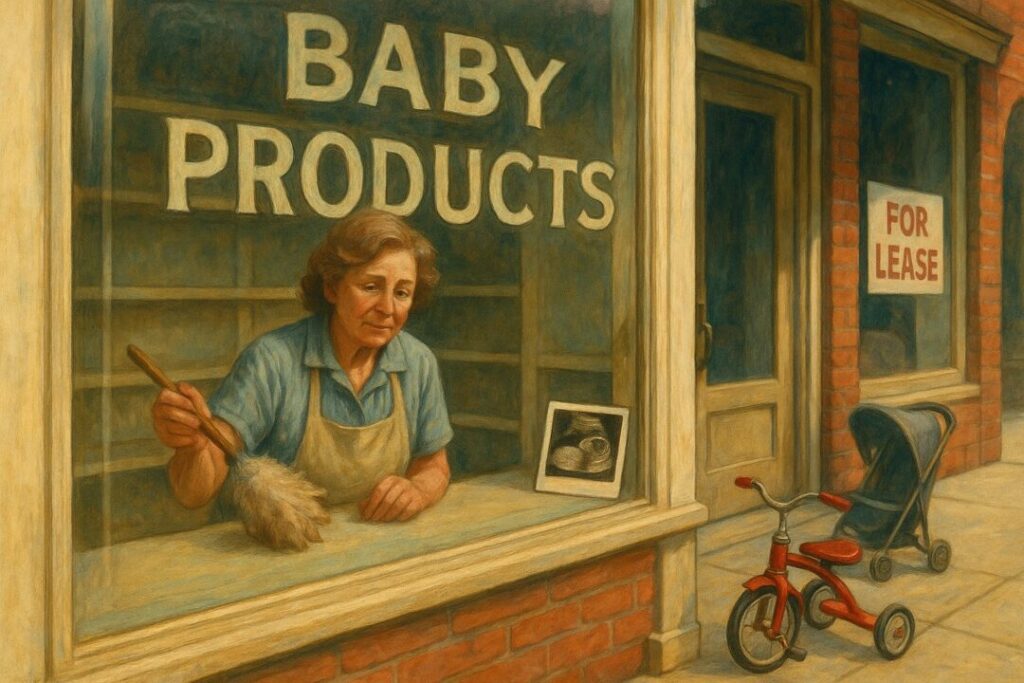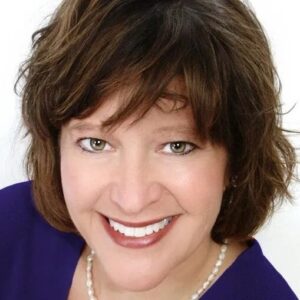America’s birth rate has been slipping for years, and the effects are finally showing up in ways that hit close to home.
This isn’t just about families choosing to have fewer kids. It’s about the ripple effect across our economy, our schools, and even small businesses right here in Nevada.
In Reno, 3D Keepsake Imaging, a locally-owned prenatal ultrasound imaging center at South Creek Plaza, has noticed the change firsthand: Fewer expectant moms are walking through the door.
That means fewer ultrasounds, fewer keepsake photos, and less demand for services that once stayed busy year-round. It also means smaller paychecks for the employees, two of which are single moms.
Stores that rely on young families are feeling the pinch too.
Toys & More recently downsized to a smaller store at the Summit Mall, as fewer families are shopping for dolls, puzzles, and board games. The Little Red Wagon, a children’s clothing store in South Creek Plaza, faces continued pressure from online shopping. Add to that a decline in birth rates, and these businesses are facing a very tough time!
For small businesses already fighting high rents and inflation, that drop in demand can be the difference between staying open or shutting down.
It’s a quiet trend, but it adds up. When fewer babies are born, everything from diaper sales to daycare enrollments goes down.
Schools and colleges are bracing for the impact as well.
A report from the National Center for Education Statistics projects that U.S. public school enrollment will keep falling through at least 2031.
That means fewer classrooms filled, fewer teachers needed, and shrinking budgets tied to attendance.
Colleges are in the same boat.
Nevada’s higher education system already faces budget fights almost every session in Carson City.
With fewer kids graduating high school, the pool of future college students keeps getting smaller.
That threatens everything from community colleges to major universities, which rely on steady enrollment to stay afloat.
For parents and students, that could mean higher tuition or fewer programs to choose from.
For taxpayers, it means questions about whether the state will keep pouring money into campuses with fewer students walking the halls.
So why are Americans, including Nevadans, having fewer children? The reasons vary.
Many younger couples are struggling with housing prices, student debt, and the rising cost of groceries. Others are waiting longer to marry and start families. Some are simply choosing to have one child instead of two or three, or none at all!
The result, though, is the same: fewer children and a slower-growing population.
That spells trouble for the economy long-term because fewer workers tomorrow mean fewer taxpayers to support Social Security, Medicare, and other programs.
The problem hasn’t gone unnoticed in Washington. President Trump has pushed ideas like a $1,000 annual child savings account for college.
The idea is simple: encourage families to have children and give parents a little financial cushion for the future.
Critics dismiss it as a “gimmick,” but it shows that this administration understands declining birth rates are more than a cultural trend – they’re a policy issue with big economic consequences.
Other countries facing the same problem, like Japan and South Korea, have tried offering child allowances and even housing incentives to boost their birth rates. So far, the results have been mixed. But the lesson is clear: if the government ignores the problem, the costs will eventually catch up.
Here in Nevada, we don’t have to look far to see the impact.
From Reno’s 3D Keepsake Imaging to small shops like The Little Red Wagon, businesses are already paying a price for fewer kids being born.
Schools in Clark and Washoe County are watching their numbers closely. And with a smaller pipeline of students, colleges may have to make tough choices.
Critics will say families should be free to have as many or as few children as they want, and that’s true. But when the birth rate dips too low for too long, the entire system feels it – from small businesses on Main Street to the state budget in Carson City.
Declining birth rates aren’t just a family issue. They’re an economic one. They shape who shops in our stores, who fills our schools, and who will one day keep Nevada’s economy running.
That’s why conservatives argue it’s time to start treating this as a real problem, not just a statistic. Because if America keeps having fewer babies, we won’t just lose customers – we’ll lose the very workers and families who keep our communities strong.
The opinions expressed by contributors are their own and do not necessarily represent the views of Nevada News & Views. This article was written with the assistance of AI. Please verify information and consult additional sources as needed.




